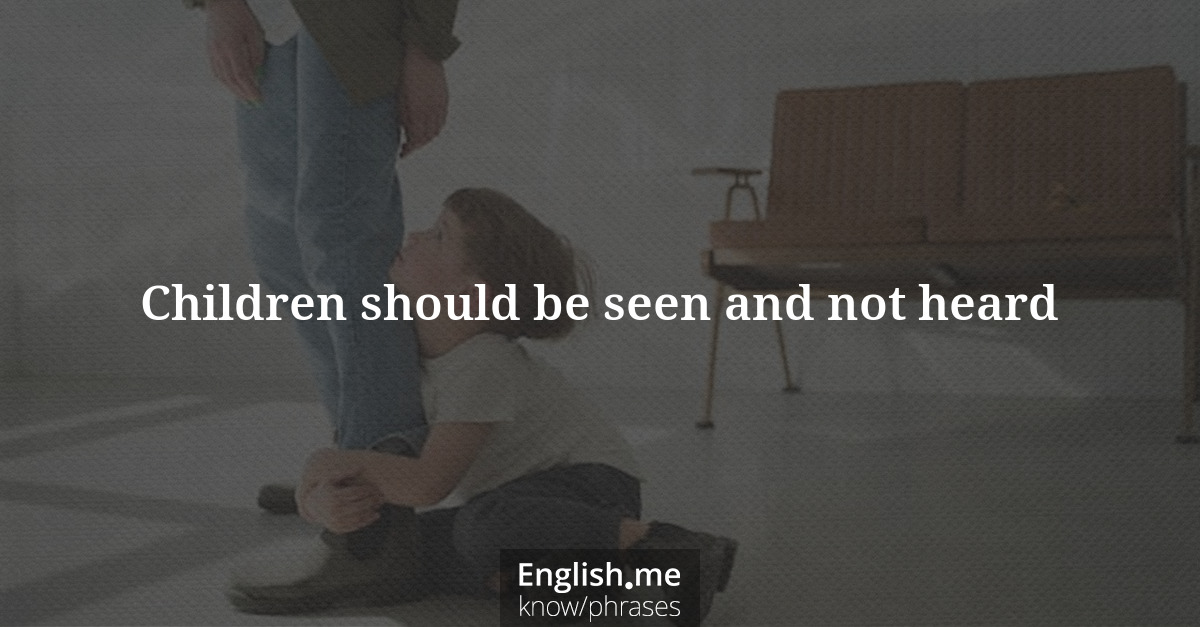Explaining "Children should be seen and not heard"
Reviewed and edited by  Lloyd Cooper 29/09/2024, 19:08
Lloyd Cooper 29/09/2024, 19:08
English.me team member
 What does it mean?
What does it mean?

The phrase suggests that children should behave quietly and not speak unless spoken to, emphasizing the expectation that they should be unobtrusive and well-behaved.
 Tone
Tone
The tone of this phrase is generally authoritarian and old-fashioned, reflecting traditional views on children and their place in society. Origin
Origin
The phrase originates from the 15th-century religious talk and was later popularized during Victorian times. It was often used to reinforce societal expectations of children's behavior in public and around adults.
 Examples of usage
Examples of usage
- Whenever the adults were talking, Claire reminded her kids that children should be seen and not heard.
- In his house, John expected that children should be seen and not heard during family gatherings.
- The old saying that children should be seen and not heard often comes under scrutiny in more modern parenting discussions.

 English
English español
español française
française italiano
italiano deutsche
deutsche 日本語
日本語 polski
polski česky
česky svenska
svenska Türkçe
Türkçe Nederlands
Nederlands